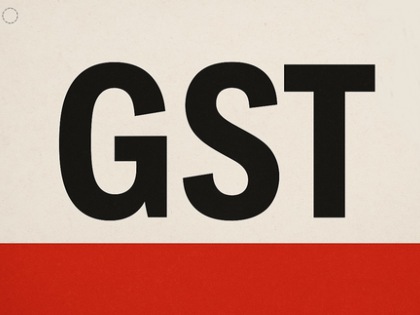GST reforms to boost affordability and accessibility in healthcare: Experts
By IANS | Updated: September 4, 2025 18:05 IST2025-09-04T18:03:43+5:302025-09-04T18:05:31+5:30
New Delhi, Sep 4 The Goods and Services Tax (GST) reforms will boost affordability and accessibility in healthcare, ...

GST reforms to boost affordability and accessibility in healthcare: Experts
New Delhi, Sep 4 The Goods and Services Tax (GST) reforms will boost affordability and accessibility in healthcare, said industry experts on Thursday.
The decision taken by the GST Council, chaired by Finance Minister Nirmala Sitharaman, rationalised the indirect tax structure, cutting the current four slabs down to two -- scrapping the 12 per cent and 28 per cent rates, while retaining the 5 per cent and 18 per cent slabs.
As per the revision, life-saving drugs, health-related products, and some medical devices will see a rate cut from 12 per cent/18 per cent to 5 per cent or nil.
Notably, the GST rates for 33 cancer drugs and rare medicines have been reduced from 12 to zero per cent.
The changes in GST rates on services will be implemented from September 22.
“This path-breaking announcement by the government to reduce GST from 12 per cent down to 5 per cent is excellent for consumers and patients. Affordability and accessibility will be an advantage for consumers to reduce their healthcare excess costs,” Rajiv Nath, Forum Coordinator, Association of the Indian Medical Device Industry (AiMeD), told IANS.
Sushil Suri, Managing Director, Morepen Laboratories, said that the reforms were “pending for a long time and are a very big step for the country.” Calling it a "big bonus for the common people", he told IANS that "all the medicines have come down from 12 to 5 and some from 18 to 5 per cent.
Himanshu Baid, Managing Director of Polymedicure, said that with the government slashing the GST rates, all the essential products of home care will become cheaper.
“Thermometers, glucometers, BP instruments, bandages, and diagnostic kits that are used in homes, all have come down to 5 per cent. Affordability and accessibility will increase. The lower middle-class population or middle class, who were suffering, will get a huge benefit,” Baid told IANS.
Disclaimer: This post has been auto-published from an agency feed without any modifications to the text and has not been reviewed by an editor
Open in app